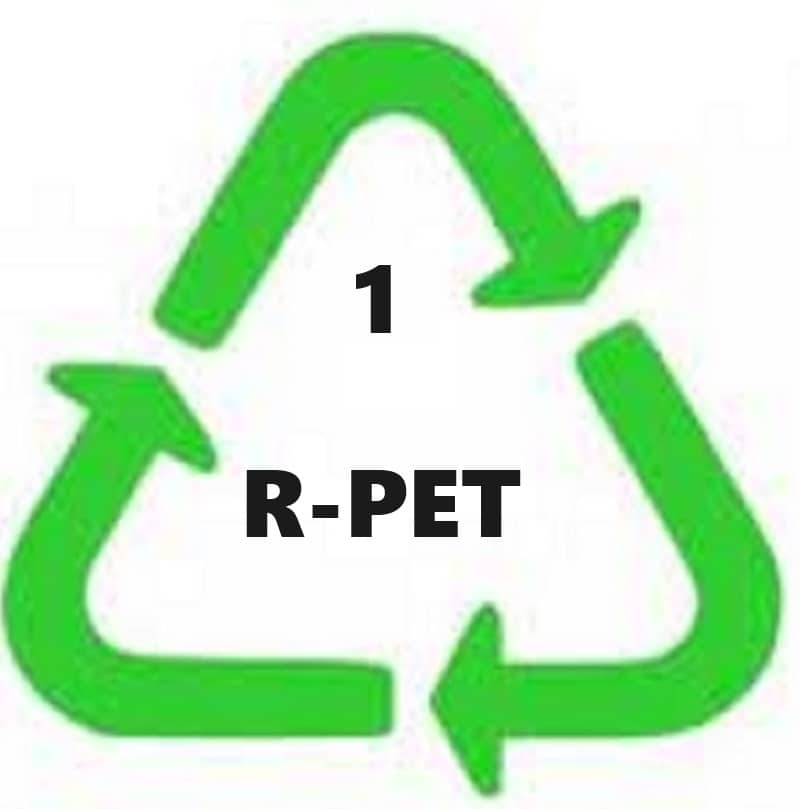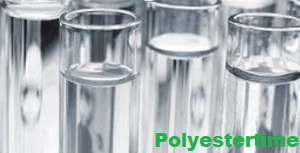Biodegradable – Hyosung’s Circular Textile Solutions Help Brands Meet Sustainability Regulations 25-09-2024
Biodegradable
Crude Oil Prices Trend

Crude Oil Prices Trend by Polyestertime
India has now overtaken China as the largest global plastic emitter, producing 9.3 million tonnes of plastic waste annually, or 20% of the world’s total
According to a recent study in Nature, this alarming trend highlights India’s growing environmental crisis. Each year, India burns 5.8 million tonnes of plastic and releases another 3.5 million tonnes into the environment, surpassing countries like Indonesia and Nigeria in waste generation.
Much of this waste is unmanaged, causing widespread pollution and irreversible environmental damage. The open burning of plastic, a common disposal method in rural areas, releases toxic chemicals that pose significant health risks, including respiratory issues and cancer. Biodegradable
Compared to the Global North, where nearly all plastic waste is managed through recycling or landfill, the Global South struggles with ineffective waste management infrastructure. In India, open burning is rampant, leading to serious environmental and public health hazards.
While India has introduced policies to reduce single-use plastics and increase recycling, challenges in enforcement and public awareness persist. Experts call for expanding waste collection, promoting recycling technologies, and raising awareness to address this crisis. As the world’s largest plastic emitter, India must prioritize sustainable practices and innovative solutions to reverse this trend and protect both the environment and public health. Biodegradable

Carbios has partnered with French sleeve label manufacturer Sleever to develop home compostable shrink sleeves
The France-based biochemistry company will supply Sleever with its PLA biodegradation enzyme called Carbios Active. The companies have signed an exclusive, long-term contract to co-develop home compostable biodegradable mono-oriented transverse shrink films.
The partners will integrate Carbios Active into the manufacturing of PLA films. Its enzymatic biodegradation process makes polylactic acid 100% compostable, even at room temperature, thereby improving the material’s compostability which is usually only possible under industrial conditions at controlled temperatures. Biodegradable
The resulting sleeves will be used in labelling and wrapping application, as well as for securing packaging for the luxury goods and mass retail markets.
“Our partnership with Sleever to bring compostable sleeves to market opens up new commercial opportunities for Carbios, particularly in the wine and spirits sector where Sleever is a leader,” said Emmanuel Ladent, CEO at Carbios. Biodegradable
“Thanks to the inclusion of Carbios Active in the formula, these types of packaging become compostable at room temperature, and therefore contribute to a more sustainable packaging industry.”
The enzyme was developed by Carbiolice, a Carbios Group company. It allows plastic packaging made from PLA to be collected together with bio-waste and to be recovered through either industrial or domestic composting or methanization. The enzyme is integrated directly into the manufacturing of flexible or rigid PLA packaging, without any changes to production lines. Biodegradable

Recyclate Prices in September: Plastic Materials Face Stagnant Demand Post-Holiday Season
As September concluded, the recyclate market for plastics encountered unforeseen challenges. Expectations were high for a demand rebound following the holiday period, but the market did not respond as anticipated. The demand for standard plastic recyclate materials failed to recover, leading to price fluctuations and market uncertainties.
Recycled PET (rPET)
Prices for recycled PET remained relatively stable throughout September. However, the anticipated increase in demand from the beverage and packaging industries did not materialize. Biodegradable
The surplus of rPET in the market, coupled with steady virgin PET prices, placed downward pressure on recyclate pricing. Manufacturers appeared cautious, possibly due to ongoing economic uncertainties and cautious consumer spending.
Recycled HDPE and LDPE
The markets for recycled High-Density Polyethylene (HDPE) and Low-Density Polyethylene (LDPE) experienced slight price decreases. Oversupply became a notable issue as collection rates remained high, but the demand from packaging, agriculture, and construction sectors did not pick up as expected. The reduced industrial activity post-holiday season contributed to a buildup of inventories, forcing recyclers to lower prices to stimulate sales. Biodegradable
Recycled PP and PS
Recycled Polypropylene (PP) and Polystyrene (PS) also saw minimal demand growth. The automotive and consumer goods sectors, significant consumers of these materials, operated below full capacity. This underperformance led to stagnant pricing and increased stock levels of recycled PP and PS.
Market Factors
Several factors contributed to the stagnant demand. Economic uncertainty, supply chain disruptions, and cautious spending behaviors affected manufacturers’ willingness to procure recycled plastics. Additionally, competition from low-priced virgin plastics, due to fluctuating oil prices, made recycled options less attractive. Biodegradable
Conclusion
The expected post-holiday surge in demand for plastic recyclate did not occur in September, resulting in stable or declining prices across various plastic materials. Industry stakeholders are now looking toward the final quarter of the year with cautious optimism, hoping for a revival in demand as market conditions potentially improve.

Hyosung’s Circular Textile Solutions Help Brands Meet Sustainability Regulations
Looming European Green Deal regulations to reduce net greenhouse gas emissions by at least 55 percent by 2030 have fiber suppliers, mills, brands and retailers alike scrambling to meet protocols. Here, Simon Whitmarsh-Knight, Hyosung’s global sustainability director – textiles, explains how Hyosung’s broad portfolio of 100 percent recycled, BIO and circular sustainable textile solutions is well-positioned to help partners meet their impact goals. Biodegradable
Simon Whitmarsh-Knight: Hyosung has always been ahead of the curve, offering new possibilities long before they become the norm, and our path to sustainability goes back 17 years. Hyosung was the first company in the world to develop recycled nylon from raw materials recovered from discarded fishing nets in 2007 and the first company in South Korea to produce GRS-certified 100 percent recycled polyester from PET bottles in 2008. Hyosung was also the first to launch RCS-certified, 100 percent recycled regen Spandex made with the reclaimed waste from our spandex production in 2020. To expand beyond recycled products, we were the first company to produce at scale, our USDA- and SGS-certified regen BIO Spandex partly made from renewable resources in 2021. This year, we expanded our regen BIO Spandex program to include yarn offerings of higher renewable resource content, plus began developing a textile-to-textile recycling program to address circularity. Biodegradable

Global Mono Ethylene Glycol Prices Show Mixed Trends in Early half of September 2024
In the first half of September 2024, Mono Ethylene Glycol (MEG) prices across key markets such as the U.S., Germany, and Asia-Pacific (APAC) exhibited diverse trends, influenced by both global and local market dynamics. In the U.S., MEG prices remained relatively stable with a minimal fluctuation, primarily due to weak demand from downstream industries like PET manufacturing. However, feedstock prices, specifically Ethylene Oxide (EO), rose by 4.5%, driven by higher Ethylene costs and supply disruptions caused by hurricanes affecting multiple production facilities. Biodegradable
Hurricane Francine, which made landfall as a Category 2 storm, impacted U.S. EO production as chemical companies began preventively shutting down operations. BASF halted operations in several facilities in Louisiana, a region that accounts enough Ethylene production. Oil production in the Gulf of Mexico was also disrupted, with nearly 39% of oil production shut down, according to the Bureau of Safety and Environmental Enforcement (BSEE), causing delays in supply chains. However, the downstream demand for MEG remained moderate as buyers showed cautious purchasing behavior amid uncertainties, further limiting price growth. Biodegradable

AE Elemental opens lithium-ion battery recycling facility in Poland
Elemental Strategic Metals and Ascend Elements partnered on the site in Zawiercie, Poland.
AE Elemental, a joint venture between Ascend Elements, headquartered in Westborough, Massachusetts, and Elemental Strategic Metals, based in Poland, hosted the grand opening of its first commercial-scale electric vehicle (EV) battery recycling facility in Zawiercie, Poland, Sept. 19. Dozens of business and community leaders from Europe and North America attended the opening ceremony and toured the state-of-the-art facility.
The facility can process 12,000 metric tons of used lithium-ion batteries annually, which equates to about 28,000 EV battery packs. Biodegradable
AE Elemental will disassemble, discharge and shred EV batteries to produce black mass, which can be used to make engineered EV battery materials, including cathode active material (CAM) and cathode precursor (pCAM).
Commercial-scale lithium extraction capabilities will be added to the new facility this fall to be operational by 2026.
In the European Union (EU), new batteries must contain a minimum amount of recycled content by 2030. In addition to helping manufacturers meet this requirement, lithium-ion battery recycling keeps hazardous battery materials out of landfills while minimizing the environmental impacts of nickel, cobalt and lithium mining. Biodegradable

Biodegradable
